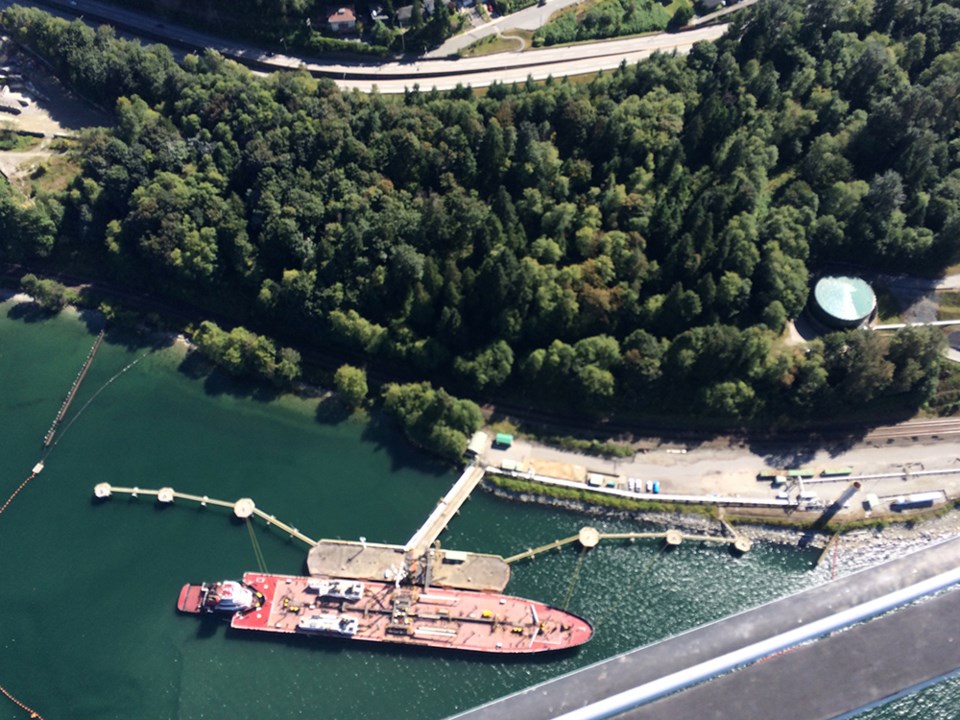The federal government must conduct an independent review of the health impacts of the proposed Kinder Morgan Trans Mountain pipeline before it makes a decision in December, according to a group of Canadian experts who released a report recently, outlining the short term and longterm health risks of the $6.8-billion project.
If the proposed expansion is approved by the Liberal cabinet, pipeline capacity would increase from 300,000 barrels of oil per day to 890,000, while tanker traffic in the Salish Sea would grow from five tankers a month to 35. The report outlines concerns should there be a spill in the Burrard Inlet or a fire at the Burnaby Mountain tank farm. One issue is increased exposure to carcinogens like benzene.
“What is required to make the bitumen move through a pipeline is essentially gasoline, so a spill would have large scale emissions of these carcinogens, many of which are associated with childhood leukemia and other cancers. Those emissions also exacerbate asthmas,” said Tim Takaro, one of the authors of the report and a health sciences professor at SFU.
Dizziness, drowsiness, rapid heartbeat, loss of consciousness, tremors, reproductive defects and neurological abnormalities are just some of the acute and chronic health impacts that come with benzene exposure, according to the report. Researchers also argue the three most vulnerable populations in a worst-case scenario are children, women of childbearing age and seniors.
Takaro and his colleagues are calling on the Trudeau government to initiate a peer-reviewed process that would look at the health impacts of the project to determine if it’s in the public interest.
“Kinder Morgan did do a human health risk assessment that they paid for. What we’re asking that this be independent of the company,” he said. “Kinder Morgan submitted only a narrowly scoped assessment of health risks for review to the National Energy Board.”
In an emailed statement, Kinder Morgan spokesperson Ali Hounsell said ensuring the health and safety of communities is Trans Mountain’s top priority.
“As part of our proposed expansion, Trans Mountain conducted human health risk assessments and provided extensive evidence to the National Energy Board about the nature and extent of possible health impacts as a result of the project and project-related marine traffic.”
Hounsell said the board concluded that Trans Mountain adequately identified and evaluated the project’s potential effects on human health, using exposure limits developed or recommended by authorities such as Health Canada and the U.S. Environmental Protection Agency.
“The board determined that additional assessment is not required. The board also concluded that for the construction of the project and for routine operation of the pipeline, pump stations and tank terminals, adverse health effects would not be expected,” the email read.
In May, the NEB approved the Kinder Morgan project but attached 157 conditions to it.
A federal panel that visited communities along the pipeline route this summer, collecting feedback, will be submitting its report to the department of natural resources by Nov. 1. Cabinet will have to make a decision by Dec. 19.



